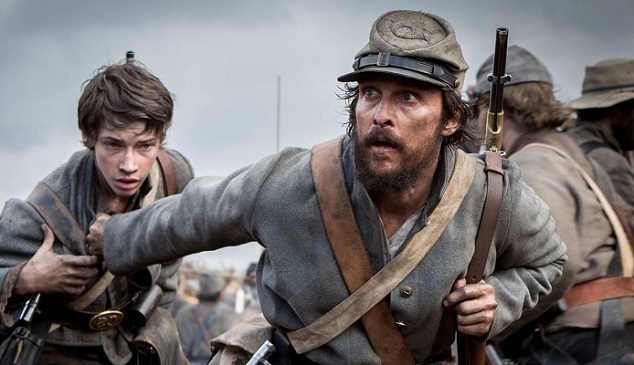
Free State of Jones | Dir: Gary Ross | Rated: MA | In Cinemas Now | ★ ★ ★
The latest offering from writer/director Gary Ross (‘Pleasantville’, ‘Hunger Games’) is the incredible true story of Newton (Newt) Knight, a former Mississippi farmer, medic and rebel.
Newt Knight is played by Oscar winner, Matthew McConaughey, who is so well cast with his deep Southern drawl, that there is barely a scene where he’s not in it. His performance of this forgotten historical character is right on the money and in my opinion should be certain for an Oscar nomination.
Newt Knight was an anti-secession and anti-slavery Confederate medic, who in early 1860’s led a rebellion against the confederacy with the help of other fellow deserters and renegade slaves. This band of ragged, untrained foot soldiers were easy cannon fodder for the more well-armed and well-equipped Union soldiers.
After losing a young family relative in the battle, Newt sets about claiming a huge swath of Mississippi territory as a free state, where slaves and fellow deserters could unite as one. This sets up conflict with the Confederate soldiers, who try to hunt and kill Newt and his followers from the marshy swamp hideout where they sought sanctuary.
The opening scenes of the American Civil War battlefield were so skilfully shot with every angle of the camera lens well-crafted that it made me feel like I was right in the thick of the battle. No jerky hand-held camera here, which was a bonus. The attention to detail in both costumes and sets were excellent, but if you’re an animal lover then in some scenes you may have to look away.
Slammed by some US critics when it was released in the States last June, the film ‘Free State of Jones’, is none the less an insightful and inspiring film, but at 145 minutes the central themes and messages got quite muddied. I consider myself to be a bit of history geek, but even I was struggling to grasp some of historic narrative. It felt like Ross didn’t want to leave any of the history out, maybe out of fear of being pillared by Civil War scholars, but it laboured under that weight. With some tighter editing and less repetition it would have been a more rewarding experience.
Terry Larder





